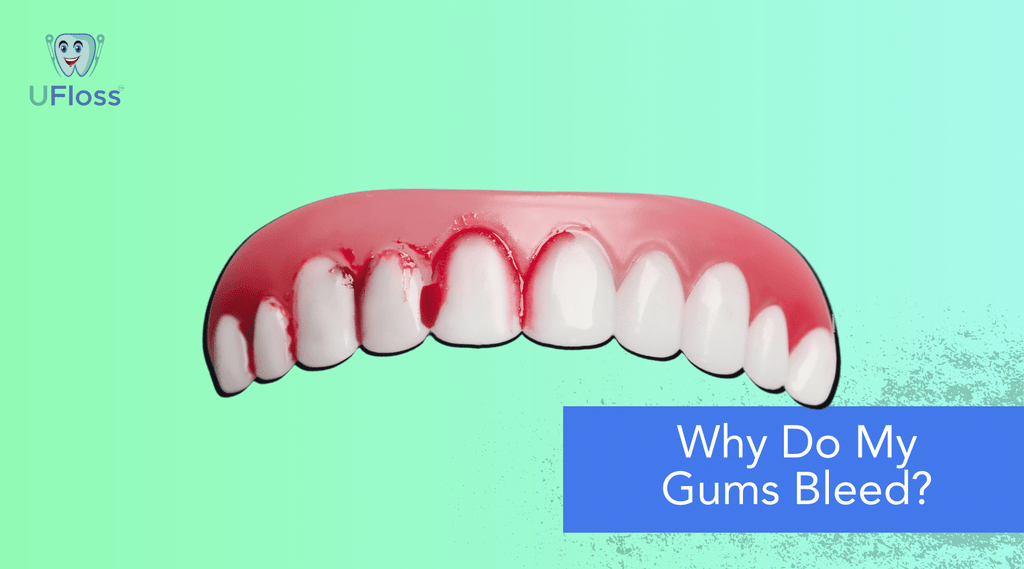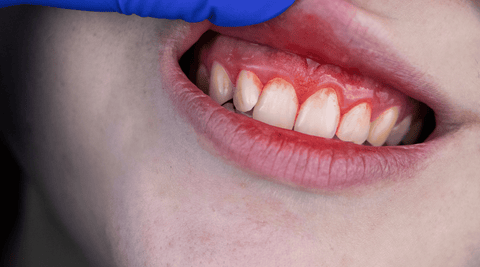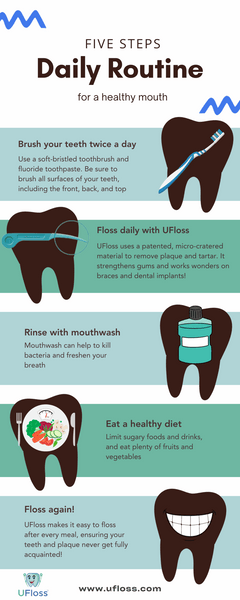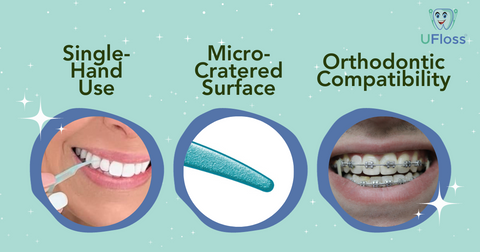Why Do My Gums Bleed?

Why Do My Gums Bleed When I Brush My Teeth?
Are you one of the many people who wonder, "Why do my gums bleed when I brush?" Or, maybe even worse, “Why do my gums bleed when I floss?” It's a common concern and, believe it or not, a question that holds the key to better oral health. Gum bleeding during flossing can be quite disconcerting, but it's a sign that your gums might be trying to tell you something important. In this article, we'll dive into the reasons behind bleeding gums, the importance of flossing, and how to address this issue effectively.
The Dilemma of Bleeding Gums
You've probably experienced it at some point – the gentle act of flossing turns into a slightly alarming one when you notice your gums bleeding. Before you panic, it's crucial to understand why this occurs. Several factors can contribute to bleeding gums during flossing:
Plaque and Tartar
Gum Sensitivity
One of the most common reasons for bleeding gums during flossing is the presence of plaque and bacteria. Some individuals naturally have more sensitive gums than others. Flossing, even when done correctly, can trigger minor bleeding in individuals with sensitive gum tissue. Additionally, if you have gingivitis, an early form of gum disease, your gums may be more susceptible to bleeding.
Inflammation
Gum inflammation, often caused by gum disease (gingivitis or periodontitis), can make your gums more prone to bleeding during flossing. Gingivitis is often characterized by red, swollen gums that may bleed easily, especially during flossing.

So, when your gums bleed while flossing, it's essential to assess the possible causes and take appropriate action.
The Vital Role of Flossing
Before we go deeper into why your gums might bleed during flossing, let's discuss the importance of flossing itself. Flossing is a fundamental part of your daily oral hygiene routine. It reaches the places your toothbrush can't – the tight spaces between your teeth. By doing so, it removes food particles and plaque, preventing the development of cavities and gum disease.
Now, here's a question to ponder: What if I don't floss? Neglecting this essential step in your dental care routine can have consequences. Plaque buildup between your teeth can lead to cavities, gum disease, bad breath, and even tooth loss. So, to preserve your oral health, regular flossing is a non-negotiable. But if your gums bleed when you floss, it can be discouraging and may deter you from maintaining this crucial practice. That's where understanding the common flossing mistakes in flossing becomes pivotal.
Now that we've explored the importance of flossing and the common mistakes that can lead to gum bleeding, let's consider the primary question at hand: Why do your gums bleed when you floss?
Don't Stop Flossing!
Surprisingly, when your gums bleed while flossing, it's a sign that you need to floss more, not less. That's right – more, not less. Inflamed gums, often due to trapped bacteria under the gumline, can lead to significant health issues. For instance, oral bacteria may enter your bloodstream, potentially causing harm to your heart, lungs and brain. Even minimal irritation, like that caused by flossing, can result in gum bleeding.
To address bleeding gums, consider two steps. First, schedule a professional cleaning and examination with your dentist to assess potential tartar buildup beneath the gums. A dental professional can provide guidance on maintaining optimal gum health. Second, commit to daily flossing for at least three weeks, as you'll likely notice reduced bleeding with each passing day.
UFloss: Your Partner in Addressing Gum Bleeding
While it's essential to understand why your gums bleed when you floss, it's equally important to have the right tools and solutions to address this issue effectively. UFloss, the revolutionary flossing pick, offers a practical solution. Its innovative design and ease of use make it the ideal companion for impeccable oral hygiene.
UFloss not only simplifies flossing but also amplifies its effectiveness. It's compatible with dental work like braces, bridges, or implants, making it an excellent choice for flossing with braces. With UFloss, you have the advantage of precise, gentle cleaning between teeth and around dental work. Its gentle design ensures you can floss comfortably, even if you have sensitive gums. Furthermore, it's conveniently portable, allowing you to maintain your oral health on the go.
Understanding why your gums bleed when you floss is the first step in taking control of your oral health. With UFloss, you have a reliable and effective solution to address this issue and achieve optimal dental hygiene. Don't let gum bleeding deter you from flossing regularly. Embrace UFloss, prioritize your oral health, and take a step toward a healthier smile and a healthier you.
Head over to our store to get started with UFloss today!




